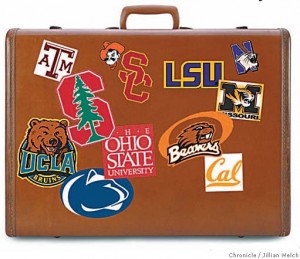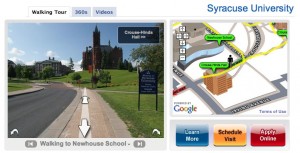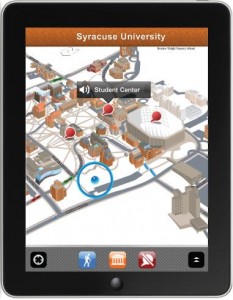 Moving into the dorm as a college student is exciting— so exciting that germs and bacteria are the last worry on a freshman’s mind. The come-and-go sense of independence, co-ed hallways, late-night weekend hangouts— by sharing such close communal spaces though from the dorm room to the bathroom, immunity from germs and sickness is impossible.
Moving into the dorm as a college student is exciting— so exciting that germs and bacteria are the last worry on a freshman’s mind. The come-and-go sense of independence, co-ed hallways, late-night weekend hangouts— by sharing such close communal spaces though from the dorm room to the bathroom, immunity from germs and sickness is impossible.
Teach your kid these dorm tips to keep your future college student happy and healthy.
Communicate About Cleanliness
Mix laziness, zero communication, assumptions and passive aggressiveness and you have an ongoing unclean room shared between two people. Encourage your kid to be upfront and communicate with the new roommate by discussing who cleans what and when. Open the doors for discussion and explain that holding in irritations will only worsen the living situation and energy exchanged. Also, your own college student may be the dirty culprit himself. Remind him that a those nasty food plates will bring in bugs and a dirty room will make him sick. Gross!
Stock Up on Sanitizing Wipes
Regularly wiping down the doorknob, microwave oven, computer keyboard and mouse, and other areas that are highly touched eliminates germs and bacteria from growing. Shop for sanitizing wipes in bulk and your college student can just easily take an antibacterial wipe to anything for a quick clean. Whether you prefer Clorox or Lysol, these wipes are an easy cleaning solution for a college student who struggles with maintaining a spotless space.
Use Hand Sanitizer
Public surfaces like the dormitory bathroom door handles and classroom stairway railings are hotspots for germs. Sanitizing these surfaces before using them is a faux pas, okay — and who has time for that anyway? Do the next best thing. Tell your kid to keep a small bottle of liquid hand sanitizer with her. She can discreetly spritz hands after touching something in a public area, especially during cold and flu season.
Keep Multiple Sets of Sheets
Buy several sets of sheets so it’s always easy to put fresh and clean ones on dorm bedroom mattresses. The desire to be clean is likely to be trumped by the desire to not do laundry, or at least frequently. By having plenty of spare sheets, trips to the laundromat are kept to a minimum and the bed stays clean for healthy nights of sleep.
Take Vitamins
College kids live on pizza and chips? Unfortunately, dining hall food choices, dorm room snacks and alcohol aren’t the most nutritious. Make sure your college student keeps his immune system strong by taking a multivitamin daily. Although vitamins can generally be expensive, there are less costly options. Try Vitacost’s Synergy Once Daily Multi-Vitamin for a supplement that is high-quality, reasonably priced and easy to take between classes.
Work It Out
The value of exercise isn’t groundbreaking news, yet emphasize to your kid how staying active improves the immune system. Walking for 30 minutes a day can prevent colds, for instance. Nobody wants to wake up with a sore throat and sit in the germ-infested waiting room at the on-campus clinic. Between cramming for exams and hanging out with friends, the gym can be a place of neglect. During that weekly phone call with your son or daughter, remind them that an active body is a healthy body!
Let’s face it though–rarely do students listen to us or take the time to follow these healthy habits. I know my kids didn’t, in spite of my constant insistence. The best we can hope for is that they grasp onto just a few of these tips. And it’s our right to “remind” them every chance we get!







 When you are touring a school for the first time, you will have many opportunities to ask questions. Don’t throw them away by not speaking up; this is your chance to learn the real truth about the campus. Nobody knows the ins-and-outs of a school better than a student tour guide. While giving tours of Syracuse University, I’ve heard some interesting questions, and some that were downright strange. But the worst is when people don’t ask questions at all. Before you visit, brainstorm and prepare yourself. Don’t waste your time asking questions like “what’s the student/faculty ratio” or “how many people apply every year.” The answers to basic questions like these are usually readily available in the school’s online and offline publications. If you are about to tour a potential school, here are the questions you should ask.
When you are touring a school for the first time, you will have many opportunities to ask questions. Don’t throw them away by not speaking up; this is your chance to learn the real truth about the campus. Nobody knows the ins-and-outs of a school better than a student tour guide. While giving tours of Syracuse University, I’ve heard some interesting questions, and some that were downright strange. But the worst is when people don’t ask questions at all. Before you visit, brainstorm and prepare yourself. Don’t waste your time asking questions like “what’s the student/faculty ratio” or “how many people apply every year.” The answers to basic questions like these are usually readily available in the school’s online and offline publications. If you are about to tour a potential school, here are the questions you should ask.

